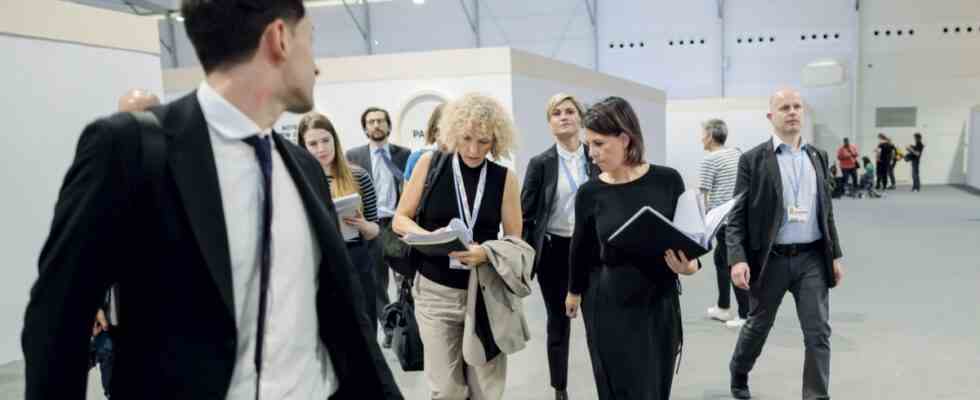Sameh Shoukry doesn’t see any major problem: “Everyone is equally dissatisfied,” said Egypt’s foreign minister on Saturday afternoon. “There is no one perfect solution.” Shoukry is the president of the climate conference in the Egyptian seaside resort of Sharm el-Sheikh – and at this point there is nothing to suggest that he will be able to tie the knots.
Three questions in particular preoccupy the summit in the last few hours:
- Firstly, how the states will drive forward the reduction of greenhouse gases in the next few years – because they are light years away from the goal of limiting global warming to 1.5 degrees Celsius.
- Second, how those responsible for climate change pay for the damage that particularly vulnerable countries are already suffering today – and what responsibility the now largest emitter, China, is assuming.
- And thirdly, how strongly the states commit themselves to climate protection in a final document – or whether they might fall behind the Glasgow agreements.
It is not unusual for a climate conference to go into injury time. It is unusual that she has so many open questions to solve in the remaining time, and such fundamental ones at that. “The world is watching,” says Shoukry at noon. “And time is not on our side.”
The latter, of course, could also be due to the way the Egyptians conducted their negotiations. Conceivably late, they presented concrete text proposals for the points of contention, the basis for every negotiation. And not even in such a way that the delegations could seriously deal with it. On Friday night, the negotiators were only allowed to read new texts on an iPad held under their noses – taking pictures was forbidden. It is a new highpoint in a generally chaotic climate conference. “Sometimes I wonder if the hosts want a result here at all,” says an experienced negotiator.
But in the afternoon the situation changed. Shoukry has new ones lyrics published, they contain something for everyone. A work program up to 2030 is included, as requested by the Europeans, it is intended to help achieve the 1.5 degree target. A formulation that would have spared states from taking a tougher approach to climate protection has also disappeared. In the morning, this passage had Federal Foreign Minister Annalena Baerbock (Greens) on the barricades. “If others want to bury the 1.5 degree path here, we say clearly: We won’t go along with that.”
The new texts also set things in motion when it comes to dealing with the damage caused by climate change. A fund is to be set up to compensate for this damage. The EU was the last to stand up for this. However, one of the central demands of the Europeans is no longer found in it: China will not necessarily become one of the donors for this fund. The People’s Republic is now an economic power and causes more carbon dioxide than any other country – but the climate convention still lists it as a developing country that does not have to give money for such funds.
But nothing has been decided yet. In the evening, an alliance that has put pressure together at previous conferences appears on the scene: the “High Ambition Coalition”. Island states and Europeans belong to it, together they demand above all more efforts on the emissions front. The group had not been able to come to a common position on the damage fund – probably also because of Chinese pressure on some island states. However, they are closed when it comes to reducing emissions. What is needed is a result that “keeps the 1.5-degree target alive,” according to a coalition statement.
This in turn affects the final document in particular, which is intended to give new impetus to climate change. So far, of course, that has not been the case, complains Austria’s Environment Minister Leonore Gewessler. “And I didn’t come just to repeat what we said last year.” After all, climate change has not stopped dead. “It’s being negotiated like crazy,” says Gewessler.

